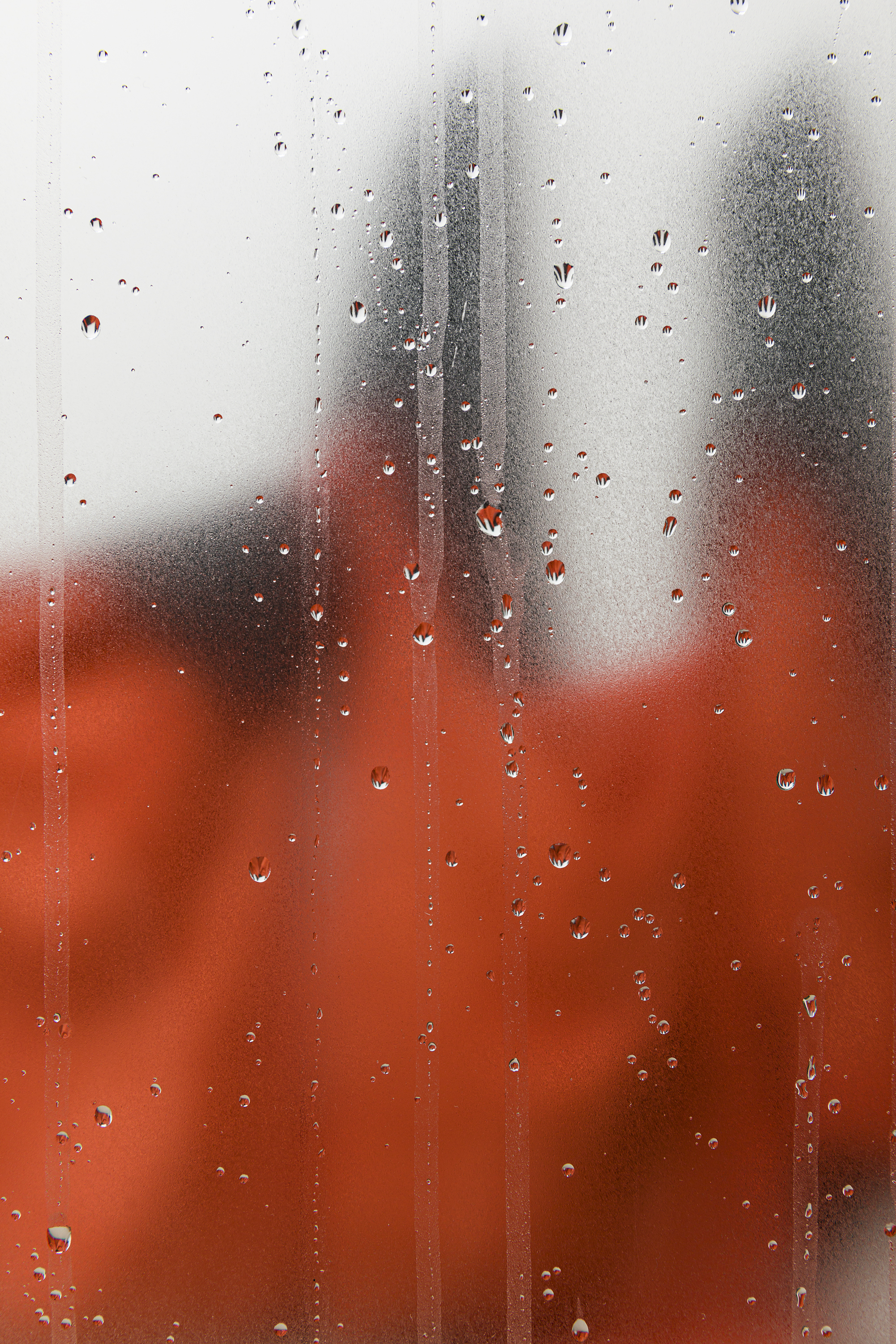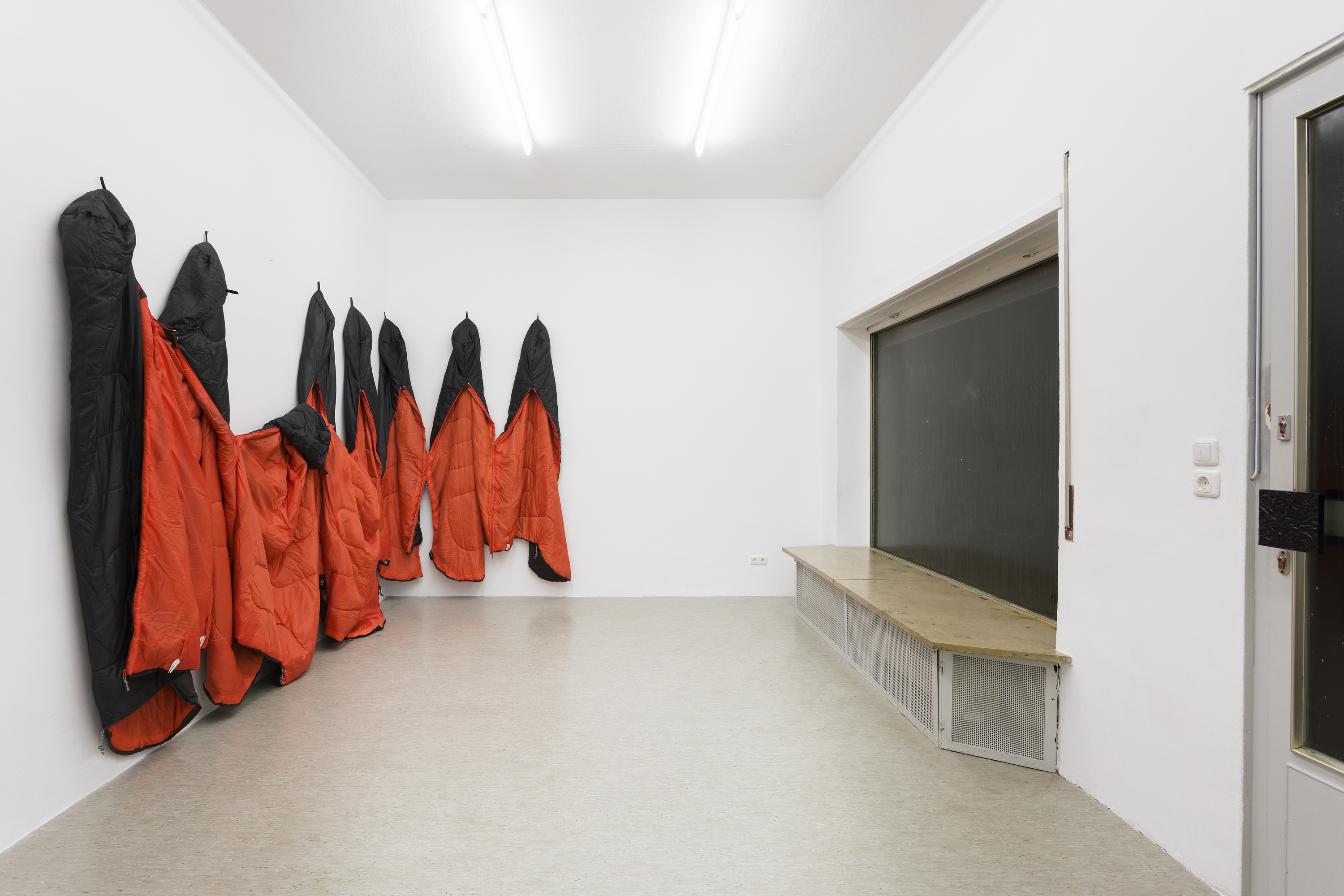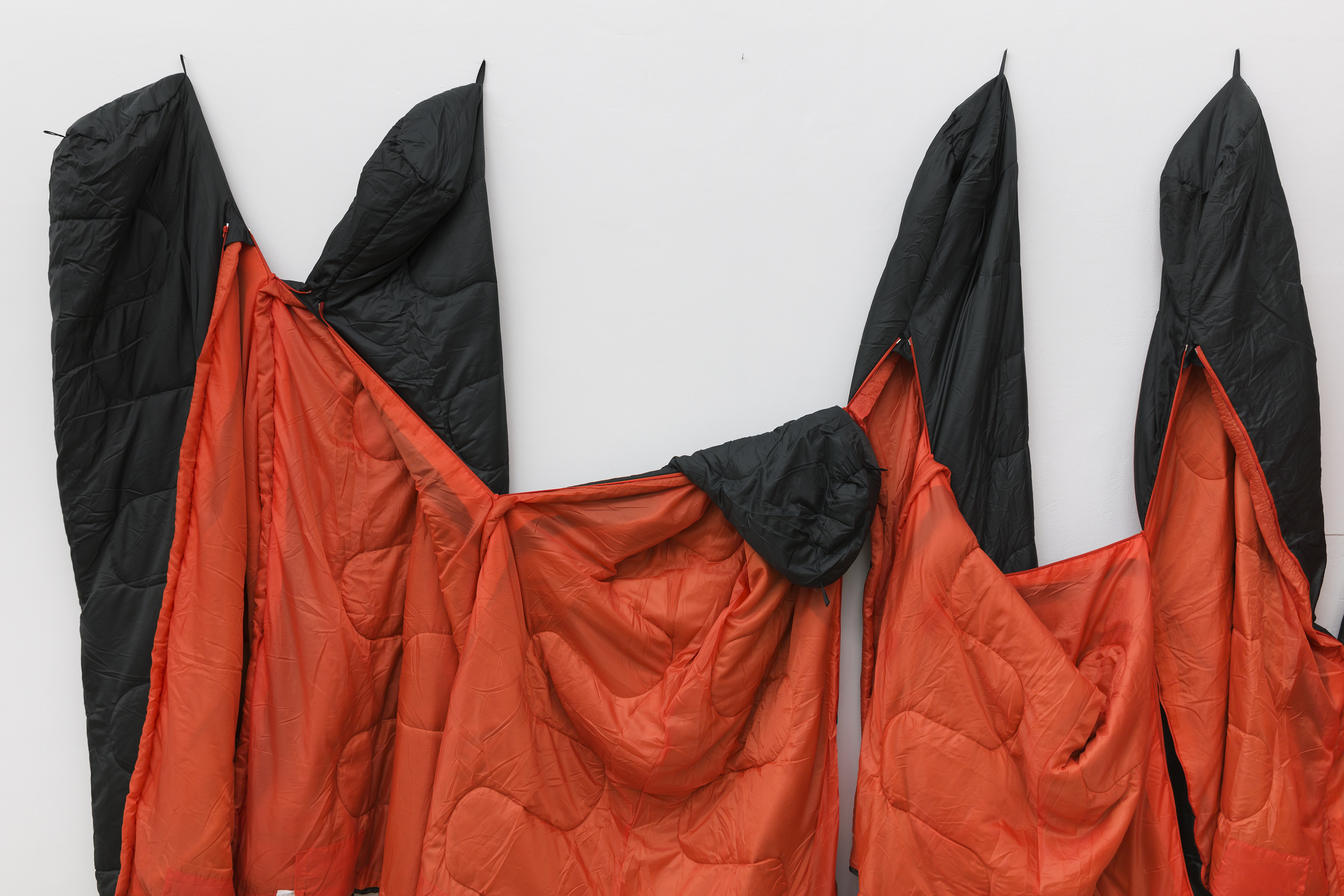Smells Like Team Spirit
13.03. - 15.03.20
with
Anskar Beau, Silke Berg, Sophia Eisenhut, Marc-Anton Jenny,
Christian Kölbl, Salome Lübke and Paul Nägele
Curated by
Alke Heykes and Junia Thiede









 Photography
©
Ivan Murzin
Photography
©
Ivan Murzin
In 2014, the American sociologist Jonathan Crary revealed in Late Capitalism and the End of Sleep the availability maxims of the 24/7 universe on a broad scale, in which the clean-handed sleep, the last bastion of the human body, competes against the total appropriation by the late capitalist, neoliberal meritocracy. In his slim book he outlines the attempts from all sides to get people to want to sleep as little as possible and still function efficiently. The heroization of sleep, this abyss in time, which supposedly cannot be colonized or productively exploited, then mutates into the epitome of a system-critical strategy of refusal.
The momentous realization that sleep is being deliberately robbed from us leads to a new form of knocked-out rebellion. Ottessa Moshfegh's My Year of Rest and Relaxation finally brought our last decade, artificially kept awake, to a fuddling end. Here, the protagonist, floating in complete sedation for a year, marks the reversal of 24/7 through absolute anaesthesia in a chronically ill world. While extensive unbridled sleep was previously considered lazy and useless, thanks to Moshfegh and the help of various relaxants, for a short time we fell into a general sleep mode, which turns out to be the most consistent and substantial refusal facing a bone-dry life.
Somewhere in between, we are in a constant attempt to put the finishing touches on our sleep behavior. Be it through apps such as Sleep Cycle, which tirelessly follows our sleep and then gives us tips on how to optimize it, or through aids such as Melatonin Spray, tedious podcasts or even diets that have slowed down our digestive process until bedtime, making it easier to fall asleep. The broad interest in physical fitness also plays into the hands of the predicted healthy sleep and, in addition to the general physical improvement, provides the much longed-for mental performance improvement. This shows that sleep can be measured and therefore controlled - and where something can be measured, a profitable market follows on its heels. Sleep, at some point perhaps the most mysterious and inalienable state of the human body and mind, deconstructed, deformed, disfigured, logically explained and horribly communicative spread out in front of us. Our phases of regeneration, so the impressive verdict is, must be used as effectively, meaningfully and expediently as possible to withstand the daily demands of the neo-liberal loop. Good sleep is decisive for our efficiency and performance, through which we can more or less successfully maintain the commodity value of our bodies.
With Smells Like Team Spirit, students from the class of Michael Riedel enter exactly this embattled territory. The artists choose an artistic collective gesture and joint sleep as a means of withdrawal. Withdrawal in the face of a purposeful appropriation of the individual and not least in the face of the fetishization of their art and current allegations of identity politics that accompany it. Authorship becomes blurred, drifts off into the ambiguous and thus eludes all value chains. At the same time, the class strengthens collaborative artistic work and turns the collective into a political project. The attempt is to escape individual exhaustion in the collective, to show solidarity and to resist the demands of the more for less. Nina Power recognizes in Don't Smile, Organise the urgent nature of this collective resistance. She fears that otherwise we might soon lose the ability to express our anger.
It has long been known that immaterial and emotional work is also being appropriated by cognitive capitalism, which exploits our basic human functions such as language, communication and sociability. In Smells Like Team Spirit, space is congruously declared to be the body, which breathes, works, rests and remains untouched by an outside world for the time being. Multiple body odors, differnet deodorants, perfumes and scents mixed with the artificial smell of plastic, the anticipated scratching and sweating and the resistant tension of the bedroll when trying to change position, the cool sleekness of the outer shell constantly remind us of extraordinary, communal experiences, of youthful freedom and friendship. The collective work becomes a corpus and, in a youthful spirit, perhaps an ephemeral proposal to think differently about the world outside the exhibition space and releases new actions.
